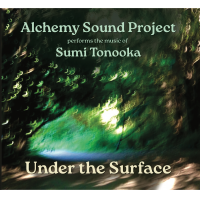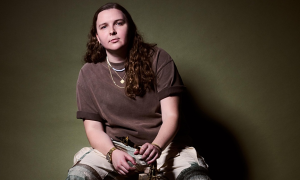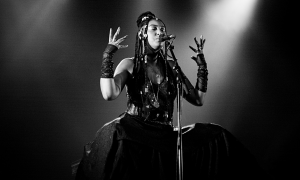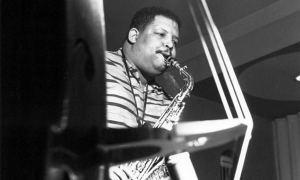Home » Jazz Articles » Inside The Interview » OKAN: Joy as Resistance, Rhythm as Home
OKAN: Joy as Resistance, Rhythm as Home

Courtesy Ksenija Hotic
We carry our ancestors with us, and we make space for joy.
—Elizabeth Rodriguez and Magdelys Savigne
OKAN
band / ensemble / orchestraCo-leaders
Elizabeth Rodriguez
violinMagdelys Savigne
percussionAsk how OKAN began, and the story starts in a cold Toronto basement, where two recent immigrants find a shared language. "It is a journey of discovery," the duo says, recalling those early sessions when Rodriguez shared her songs and Savigne recognized a composer emerging. "That was the beginning of believing in myself as a singer-songwriter and a violinist who could also sing." A foyer gig after an
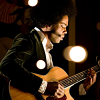
Alex Cuba
guitarNaming the band clarified their mission. "We honor our ancestors and our religion... and we wanted a name Canadians could pronounce," the duo said. "OKAN means 'heart,' and we put our heart and soul into it—especially as immigrant musicians learning a new landscape."
Purpose is woven into the process. When asked how songs develop, the pair described a dialogue that begins with feeling and takes shape through rhythm. "Usually, the melody or the lyrics come first—something we need to say or share," they explain. "Then Mags brings the flavor on the drums and in the arrangement." In recent years, they have emphasized both individual authorship and collaboration, a dual approach that gives their records both lift and contrast.
The themes in the new material are intense and raw. "We're working with people more rooted in the modern, digital way of making music... and we're analog," they say with a grin. What matters most, though, is the arc they're tracing: "a journey of self-awareness and self-love...and healing," citing the loss of friendships and family reckonings as part of what the songs explore. "When you find self-love, you see the way out. For us, music and our ancestors and our gods...are the only things that have saved us." Collaboration remains vital, including a recent single with Brazilian multi-instrumentalist
Munir Hossn
bassOKAN's advocacy is as lively as its polyrhythms. From the start, the duo focuses on women's perspectives and work, beginning with a piece by Cuban composer Roberta Morales and expanding to a broader cultural stance. "We wanted our first message to be supporting female composers and amplifying those who are often unheard—especially in Cuba, where we come from." Their concerts embody that ethos: featuring multilingual lyrics (Spanish, Yoruba, Spanglish), ritual refrains, and celebratory choruses that engage audiences as participants.
Family isn't a separate chapter—it's onstage. "Touring for a queer family means a lot," they say. "People get to see us as a normal family on the road, supporting our dreams." Their three-year-old son, OrЁІn, sometimes joins them in performances. "He is with us every step of the way...it doesn't matter how far the journey is—he's prepared to be with us," the duo says, adding that his debut was during a run of Colorado shows, where he performed his composition "El Lago Oscuro."
For Bay Area audiences experiencing OKAN at SFJAZZ's Joe Henderson Lab, the message is clear. "We want people to be part of the performance...they have to sing, they have to dance." This time, the setup is more intimate—mainly a duo—with new music from the upcoming fourth album woven into the set and room-changing percussion breaks. "Most of the time we have a plan," they add, "but we read the room...we'll go where the energy goes."
A live setting is where the music comes into focus. Rodriguez's violin shifts from charanga lyricism to gritty blue notes, while Savigne's batЁў and hand drums drive polyrhythms that transition from rumba to songo to straightforward swing. Their harmonized vocals—Spanish, Yoruba, and English—turn tight song structures into call-and-response, blurring the line between ceremony and celebration. It's precise like chamber music and street-ready all at the same time—it is music that encourages you to listen closely and then get up and move.
What never changes is the feeling in the room. Violin lines soar over hand-drum thunder; chants open into shining harmonies; choruses bloom until they belong to everyone. The music is tight and fearless, but the vibe remains inclusive, designed for community, dancing, and healing in real time. Listeners who come curious often leave transformed, humming refrains and maybe a new word in Yoruba.
And OKAN is already looking ahead. "We're continuing to learn and push ourselves," the duo said. "Come sing with us. Come dance!"
Tags
Interview
OKAN
Steven Roby
United States
California
san francisco
Elizabeth Rodriguez
Magdelys Savigne
Alex Cuba
Munir Hossn
Roberta Morales
SFJAZZ
Comments
PREVIOUS / NEXT
Support All About Jazz
 All About Jazz has been a pillar of jazz since 1995, championing it as an art form and, more importantly, supporting the musicians who make it. Our enduring commitment has made "AAJ" one of the most culturally important websites of its kind, read by hundreds of thousands of fans, musicians and industry figures every month.
All About Jazz has been a pillar of jazz since 1995, championing it as an art form and, more importantly, supporting the musicians who make it. Our enduring commitment has made "AAJ" one of the most culturally important websites of its kind, read by hundreds of thousands of fans, musicians and industry figures every month.
Go Ad Free!
To maintain our platform while developing new means to foster jazz discovery and connectivity, we need your help. You can become a sustaining member for as little as $20 and in return, we'll immediately hide those pesky ads plus provide access to future articles for a full year. This winning combination vastly improves your AAJ experience and allow us to vigorously build on the pioneering work we first started in 1995. So enjoy an ad-free AAJ experience and help us remain a positive beacon for jazz by making a donation today.

San Francisco
Concert Guide | Venue Guide | Local Businesses
| More...



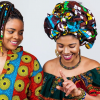

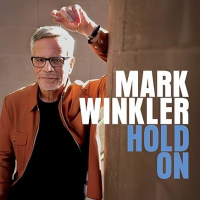



 Buy Now
Buy Now


